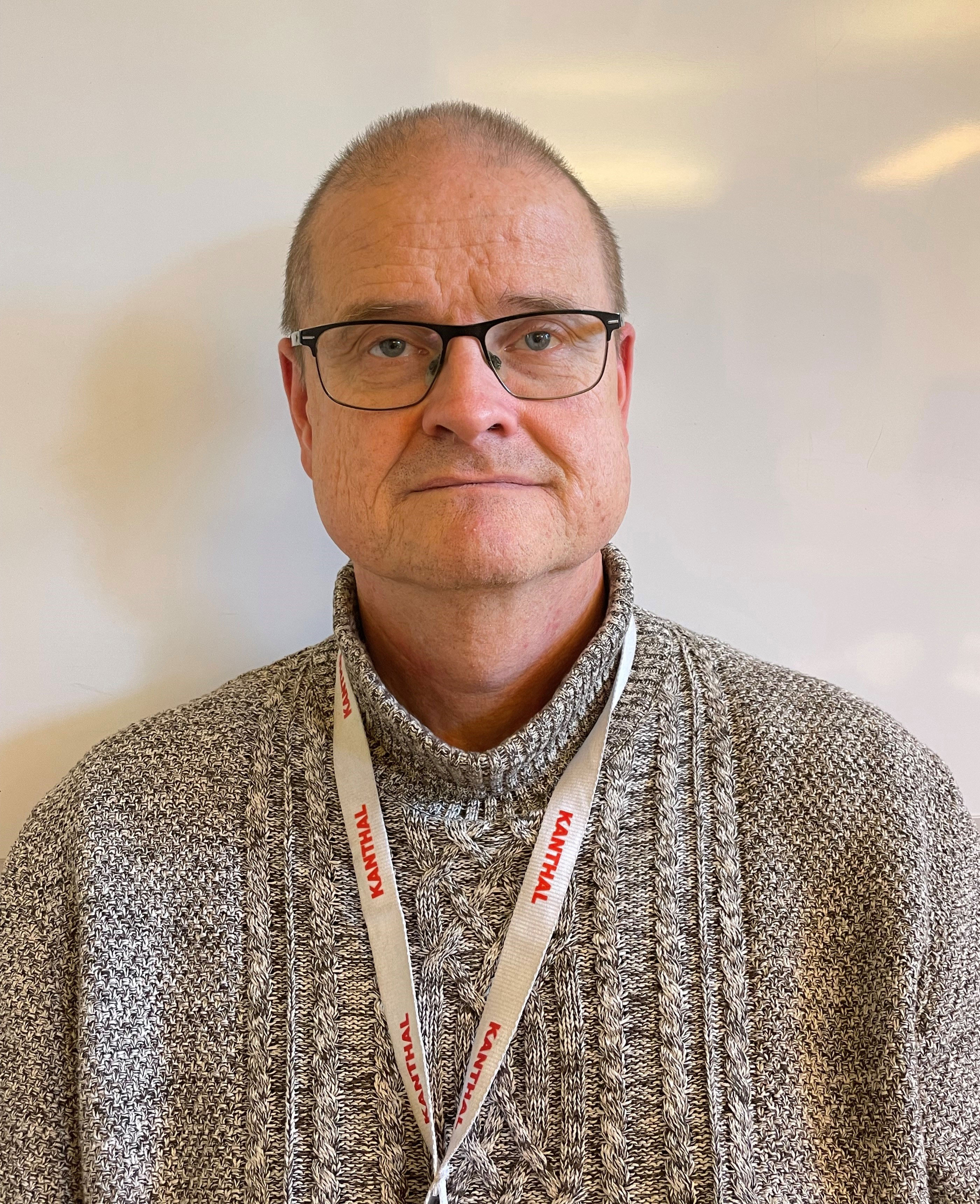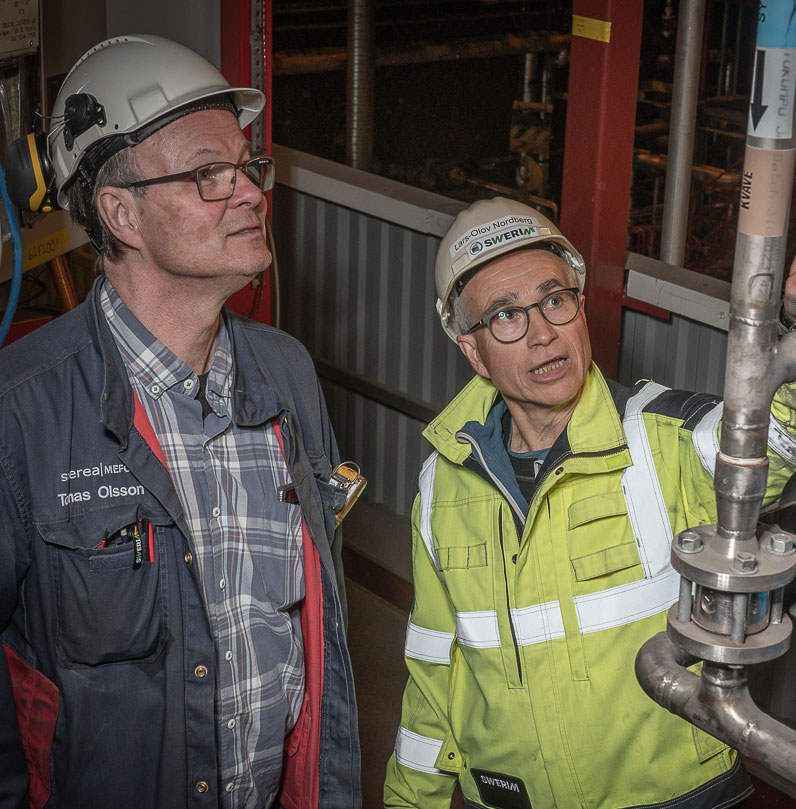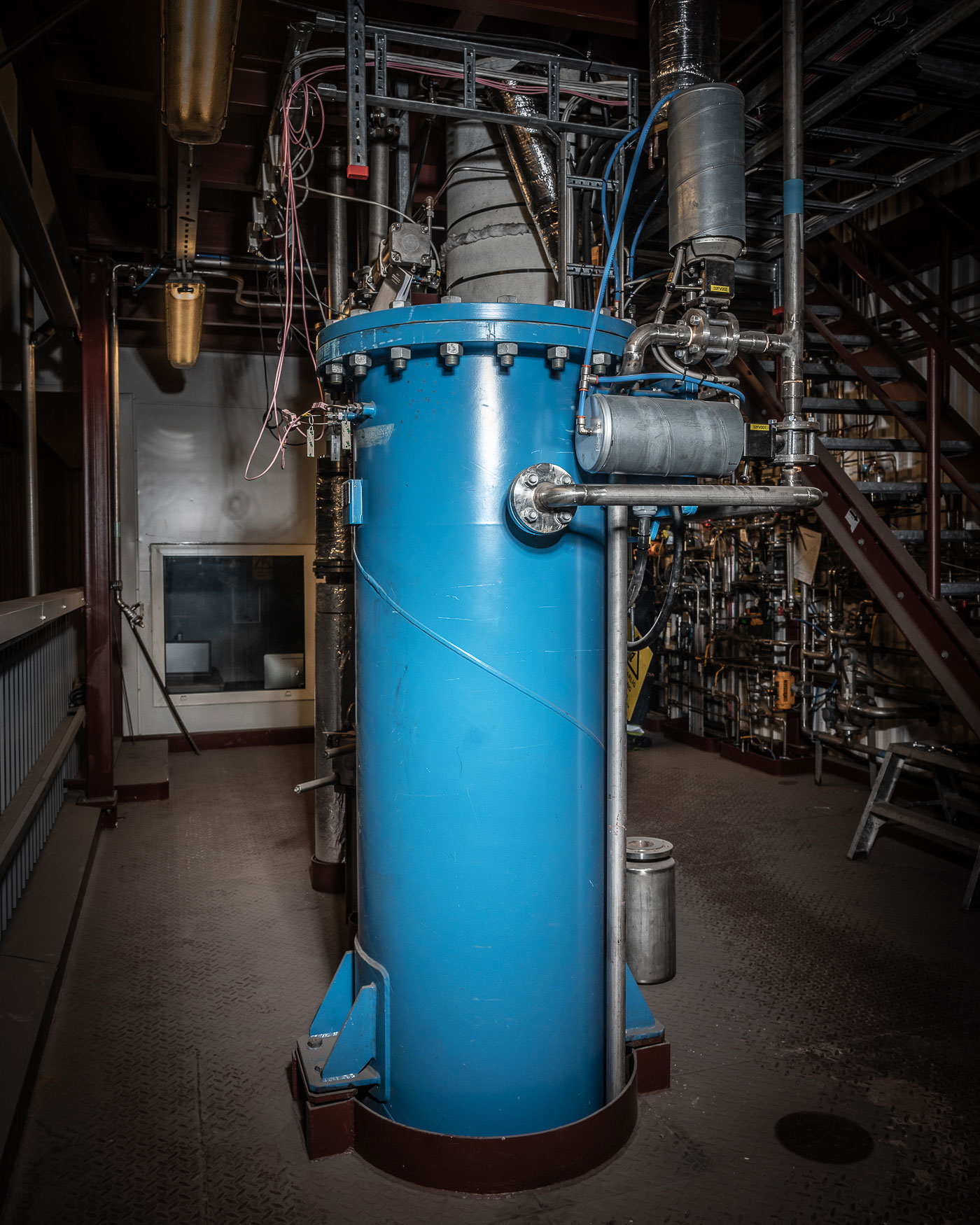In 2013, Thomas Olsson at the metal research institute Swerim in Luleå had an idea for an electric gas heater – and it didn’t take long to identify a suitable partner for the job. Because of Kanthal’s extensive knowledge in electric heating technology, as well as the unique product and material offered, that can withstand exorbitantly high temperatures and gas environments, the partnership felt obvious. Thomas Helander, R&D expert and project manager, Kanthal.
Thomas Helander, R&D expert and project manager, Kanthal.
"Swerim wanted our help in manufacturing this heater based on their own design philosophy," says Thomas Helander, R&D expert and project manager at Kanthal. At Swerim, an industrial need for new gas heating technology has been identified from several projects working with the metallurgical industry. "Of course, we wanted to be a part of this, especially because we felt their ideas were very interesting and exciting.”
A project like this can lead to significant benefits for the industry.
For Lars-Olov Nordberg, project manager for the fluid bed facility where the first gas heater was installed in 2013 at Swerim, it is important to emphasize how a project like this can lead to significant benefits for the industry. It invites the opportunity to tailor specific test runs for solutions and requirements that different actors may have.
 Thomas Olsson, Project Manager, Nycast and Lars-Olov Nordberg, Project Manager, Swerim."Swerim is partially owned by the Scandinavian steel industry, and thanks to our facilities we can perform tests in process-like conditions demanded by the industry. It also enables Kanthal to properly demonstrate this to their end users," says Nordberg.
Thomas Olsson, Project Manager, Nycast and Lars-Olov Nordberg, Project Manager, Swerim."Swerim is partially owned by the Scandinavian steel industry, and thanks to our facilities we can perform tests in process-like conditions demanded by the industry. It also enables Kanthal to properly demonstrate this to their end users," says Nordberg.
After the first heater was installed at Swerim, the engineering company Nycast further developed the electric gas heating technology for a wider area of use. In 2021, Kanthal entered into a license agreement with Nycast to bring the technology to market.
Reducing the carbon footprint
Electrification is an effective way for the steel industry to reduce CO2 emissions. Electricity can be used in various heating processes instead of burning gas which is common today - especially in the steel industry, according to Helander. "At Kanthal, we see a lot of interest in electrification, where there really is a need to heat different types of gas mixtures,” he says. Once heated with electricity, the process can be very energy efficient and by using green electricity the overall carbon footprint is very low.
Innovation with hydrogen
 Kanthal and Swerim's large scale process gas heater."With this solution, gas never comes into direct contact with the heat source, which creates a safer process with higher efficiency," says Thomas Olsson at Nycast and founder of the technology behind the process gas heater. “For us, the sustainable aspect is particularly important; you can use wind power or other renewable electricity to produce the electricity to drive the electric heater,” he says.
Kanthal and Swerim's large scale process gas heater."With this solution, gas never comes into direct contact with the heat source, which creates a safer process with higher efficiency," says Thomas Olsson at Nycast and founder of the technology behind the process gas heater. “For us, the sustainable aspect is particularly important; you can use wind power or other renewable electricity to produce the electricity to drive the electric heater,” he says.
The use of hydrogen gas for industrial processes, such as the reduction of iron ore with hydrogen gas, requires an extremely reliable and energy-efficient gas heater that can heat extremely large quantities of gas to high temperatures. Kanthal's high-temperature products together with Nycast’s technology provide a heater that meets the requirements, while also meeting the very high safety requirements for the use of hydrogen.
The choice of Kanthal as a partner and supplier was further proven as the products offered were on par with what the application requires.
"Kanthal's standard products and materials are particularly suitable for this application. All our tests went very smoothly with close to 100% efficiency," says Olsson, praising the Kanthal® APM tubes. "The material is very good and very suitable for these applications where, for example, it eliminates things like carbon deposition."
Develops over time
The first gas heater at Swerim is now celebrating its 10th anniversary. It can be noted that no maintenance has had to be done even though the gas heater has been pushed far beyond the design for which it was originally built. While a decade may not be a long time in terms of research, the technology and solutions have evolved significantly.
"Over the years, Nycast has been able to review and refine the heater design and scale up the technology. Operational experience and test data have been collected as part of several projects, as well as its surrounding systems – both in terms of mounting and control systems," says Helander. While at Kanthal, we have continuously provided new products to use in the heater that was not available in 2013."
It is necessary to have a long-term mindset because results are generated over time.
Lars-Olov Nordberg agrees: "Getting things in place takes time. It is necessary to have a long-term mindset because results are generated over time. We have been able to offer a lot of input to customers and have had several opportunities to link processes together in the correct test environment, he says.
Beneficial to all industries
The process heater is mainly applied to the steel industry where it has great potential, but as both Helander and Olsson express it, other industries would also benefit from the process heater technology.
“We see applications in combustion and heating — manufacturing of cement — where we have also developed a concept, says Olsson. "It's partly about investigating at what scale it could be used, and this had been funded by one of the major players in the cement industry."
Thomas Helander hopes to start rolling out process heaters within the next few years, starting in the steel industry. As part of this process, expanded capabilities to test and demonstrate this technology to customers are planned to be made available in 2024.
Manufacturers of gas heaters for special processes now take place for selected customers.
"But anyone who is interested in this will be able to take part in it. We will of course have to consider potential challenges regarding different conditions and needs."